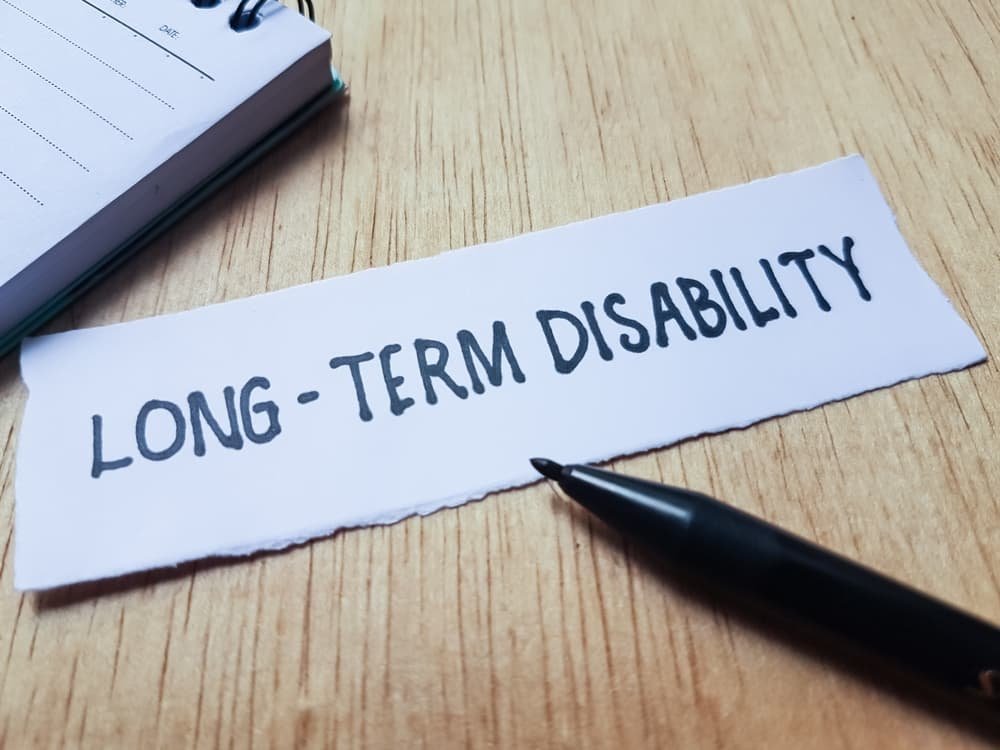Understanding Personal Loans
Personal loans are a type of unsecured loan that borrowers can use for various purposes, including debt consolidation, home renovations, medical expenses, or even funding a vacation. Unlike secured loans, which require collateral such as property or a vehicle, personal loans rely on the borrower’s creditworthiness, meaning that the lender evaluates the individual’s credit score, income, and overall financial history to determine the loan’s terms and approval. This distinction plays a significant role in the processing time involved in obtaining a personal loan.
The typical use of personal loans is to finance immediate needs without jeopardizing assets or long-term investments. Many people opt for this type of loan to pay for unforeseen expenses or consolidate high-interest debt into a more manageable payment, which may lead to lower monthly costs. Understanding the purpose and mechanics of personal loans allows prospective borrowers to make informed financial decisions, especially in a state like New Jersey, where the demand for such loans is prevalent.
When considering how long it takes to get a personal loan, it is essential to comprehend the various processes involved. Loan timelines can vary significantly based on factors such as the lender, the applicant’s financial profile, and the completeness of the application. Consequently, understanding these timelines is a vital aspect of personal financial planning, as delays could affect a borrower’s ability to address urgent financial needs effectively. For individuals looking to get a personal loan in New Jersey, having a clear grasp of these dynamics will aid in setting realistic expectations and preparing the necessary documentation in advance.
Factors Influencing Loan Processing Time
The time it takes to get a personal loan in New Jersey can be significantly influenced by several key factors. Understanding these factors can help applicants navigate the loan process more efficiently and set realistic expectations.
One of the most critical factors is the applicant’s credit score. A higher credit score generally indicates a lower risk to lenders, which can lead to faster loan approvals. Conversely, applicants with lower credit scores may face more rigorous scrutiny, resulting in extended processing times. Lenders often require additional documentation or may need to perform more in-depth evaluations, which can delay the overall loan approval timeline.
Another important consideration is the loan amount. Larger loan requests may trigger a more extensive review process by the lender. This is particularly true for banks and credit unions that have strict lending criteria. On the other hand, smaller loan amounts may qualify for automated processing, thereby reducing the wait time for applicants who seek to get a personal loan in New Jersey.
The type of lender also plays a significant role in the processing timeline. Traditional banks and credit unions may have more established procedures that can lead to longer processing times due to their thorough assessment protocols. In contrast, online lenders often utilize technology to streamline approvals, which may lead to faster results. However, this can vary widely based on the specific lender’s practices.
Lastly, an applicant’s financial history can affect the time it takes to get a personal loan. Lenders will assess previous borrowing behavior, existing debts, and overall financial stability. Incomplete or unclear financial information can lead to delays, emphasizing the importance of providing thorough and accurate documentation when applying for a loan.
The Application Process Explained
Obtaining a personal loan in New Jersey involves several distinct steps that encompass the application process, which can vary in duration depending on several factors. To begin with, a borrower typically initiates the process by submitting an initial application to the lender. This online or in-person application usually requires basic information such as personal details, loan amount requested, and purpose of the loan. Completing this step can take anywhere from a few minutes to a few hours, largely depending on how organized the applicant is with their information.
Following the submission of the application, documentation is key. Lenders generally require various documents to assess the creditworthiness of the borrower and the purpose of the loan. Commonly requested documents include proof of income, bank statements, identification, and financial obligations, among others. The collection and submission of these documents can take anywhere from a day to a week, as borrowers often need time to gather everything required.
Once the documentation is submitted, the lender will conduct a credit check, which usually takes a few minutes. This step is essential in determining the borrower’s credit score and history, as it influences the terms of the loan, including the interest rate and repayment options. Subsequently, the underwriting process begins, where the lender evaluates the information provided to ensure that the applicant meets the necessary criteria for approval. This step generally can take anywhere from a few days to over a week, depending on the lender’s workload and the complexity of the application.
In conclusion, while the entire application process to get a personal loan in New Jersey may typically span from a few days to a couple of weeks, being aware of the specific steps and their respective durations can help set realistic expectations for those seeking financial assistance.
Average Processing Times for Different Lenders
When considering how long it takes to get a personal loan in New Jersey, it is essential to recognize that processing times can vary significantly among different types of lenders. Traditional banks, credit unions, and online lenders each have unique processing protocols that impact the speed at which a loan can be approved and disbursed.
Typically, traditional banks may take anywhere from five to ten business days to process a personal loan application. The length of time is often attributed to their comprehensive verification processes, which include credit checks, income verification, and other necessary documentation assessments. These banks tend to prioritize thoroughness, which, while ensuring a secure loan, may result in longer processing times.
Credit unions, on the other hand, often provide a more streamlined lending experience, particularly for their members. On average, credit unions can process personal loan applications in about three to five business days. Their community-oriented approach allows for quicker decision-making, and they often have more flexible lending guidelines compared to traditional banks, which helps expedite the process.
In stark contrast, online lenders frequently boast the fastest processing times, with many offering approvals within minutes and funding available as soon as the next business day. This quick turnaround is a major selling point for those who need to get a personal loan in New Jersey rapidly. However, while online lenders are faster, borrowers should remain cautious and thoroughly research the lender’s credibility and loan terms.
In essence, the choice of lender can significantly influence how long it takes to get a personal loan. By understanding the average processing times across different lending institutions, borrowers can make more informed decisions that align with their financial needs and time constraints.
Expedited Loans: Is It Worth It?
Expedited loans represent a financial product designed for individuals who require quick access to cash. Typically, these loans are processed faster than standard personal loans, often delivering funds within one business day or even within hours. In contrast, a traditional personal loan may take several days or weeks to finalize, which can be a considerable drawback for those in urgent need of funds. One significant factor to consider when deciding whether to get a personal loan in New Jersey quickly is the ease of application associated with expedited loans. Most lenders offering accelerated processing have streamlined online applications, which allows borrowers to complete the process efficiently.
However, while expedited loans offer the benefit of speed, they often come with higher interest rates and fees compared to standard lending products. Borrowers may find that the urgency of their situation leads them to overlook the full cost of these loans, which can accumulate if not paid promptly. As a result, it is crucial to assess whether the quicker access to funds will save you a significant amount or if it ultimately places you in a more precarious financial position. Before choosing to get a personal loan in New Jersey, weigh the associated costs against the urgency of your cash flow needs.
It is also essential to explore any alternatives before committing to an expedited loan. Some lenders offer more flexible repayment terms or competitive rates if borrowers can wait a little longer for the funds. Additionally, consider your credit score, as a strong credit history may make it possible to secure favorable terms for both fast and traditional personal loans. Ultimately, understanding the implications of expedited loan options can help you make a well-informed decision when you need to get a personal loan swiftly.
Tips to Speed Up Your Personal Loan Application
When considering how long does it take to get a personal loan, applicants can take proactive steps to streamline the process. One effective strategy is to gather all necessary documents in advance. Before initiating the loan application, compile documents such as proof of income, tax returns, identification, and any outstanding debt information. Having these readily available can significantly reduce processing time, allowing lenders to verify your financial standing more efficiently.
Another important factor to consider is your credit score. Maintaining a good credit score not only improves your chances of approval, but it can also expedite the loan processing time. Lenders typically review applicants’ credit histories to assess their risk. Therefore, it is advisable to check your credit report for any inaccuracies and rectify them before applying for a personal loan in New Jersey. Moreover, making timely bill payments and reducing outstanding debt can greatly enhance your creditworthiness.
Choosing the right lender is equally crucial. Prior to applying, research various lending institutions to identify those known for quick processing times. Online lenders, for example, may often have streamlined applications and faster funding than traditional banks. Reading customer reviews and asking for recommendations can help you choose a lender that meets your needs efficiently. Also, ensure you understand the lender’s requirements and application timeline, as this can further help you prepare.
By implementing these tips—gathering necessary documentation in advance, maintaining a solid credit score, and selecting the right lender—you can significantly reduce how long it takes to get a personal loan. This not only enhances the likelihood of approval but also ensures a smoother experience throughout the lending process.
Common Delays in Personal Loan Approval
Obtaining a personal loan can be a straightforward process; however, several common delays can hinder the expediency with which individuals can successfully get a personal loan in New Jersey. One major reason for delays is the submission of incomplete applications. Lenders require comprehensive information to assess an applicant’s creditworthiness, and failing to provide all necessary documentation may lead to additional requests and extended processing times. It is essential for applicants to ensure that their applications are complete and thorough from the outset to mitigate this risk.
Another common issue relates to the provision of inaccurate or misleading information. Errors in providing personal details, financial history, or documentation can stall the approval process. Applicants are advised to double-check the information provided, ensuring that it is accurate and truthful, as intentional or unintentional discrepancies can lead to a denial or a lengthy inquiry process.
Extensive underwriting reviews can also result in delays. This stage involves a comprehensive evaluation of the applicant’s financial status, which includes income verification, assessment of credit history, and debt-to-income ratio calculations. If the underwriting team requires additional time to analyze the application or requests further documentation, this can prolong the overall timeline. To minimize delays in underwriting reviews, it is beneficial for applicants to maintain open communication with their lenders and respond promptly to any inquiries or requests for information.
In conclusion, by understanding the common pitfalls that can lead to delays, applicants can take proactive steps to ensure a smoother loan approval process. Submitting complete and accurate applications, along with being responsive to lender requests, can significantly reduce the time it takes to get a personal loan in New Jersey.
Real-Life Timeframes: Personal Loan Stories from New Jersey Residents
Understanding how long it takes to get a personal loan can often be more effectively conveyed through personal experiences. Many residents of New Jersey have shared their individual journeys when seeking to obtain a personal loan, illustrating the diverse timeframes and challenges they encountered. For instance, Maria, a resident of Newark, applied for a personal loan to consolidate debt. She reported that the entire process took about five business days from application to funding. Maria emphasized that being organized with her documentation was key to this quick turnaround.
On the other hand, James from Trenton faced a much more prolonged process. He began his application during the holiday season, which he later learned significantly slowed down everything due to the volume of applications lenders were processing. His personal loan request took approximately three weeks to be finalized, largely due to the lender’s extensive due diligence and slow communication during that peak time. This experience exemplifies how the time it takes to get a personal loan can be heavily influenced by external factors.
Another interesting account comes from Sarah, who lives in Jersey City. She opted to go through a credit union, believing it would offer a more personal touch. In her case, the loan was processed relatively quickly, taking about seven business days. Sarah highlighted the importance of discussing her needs with a loan officer, which resulted in efficient paperwork and expedited processing. Overall, these real-life stories from New Jersey residents reveal that while the average timeframe to get a personal loan may be anticipated, individual experiences can vary widely based on personal circumstances, lender responsiveness, and external factors. These narratives certainly shed light on how long it can take to receive a personal loan and the differing challenges applicants might face during the process.
Conclusion: Planning Your Personal Loan Timeline
Understanding how long it takes to get a personal loan in New Jersey is a critical aspect for anyone considering this financial option. Throughout this blog post, we discussed the various factors that influence the loan approval timeline, which can vary significantly based on individual circumstances, lender requirements, and documentation preparedness. Typically, applicants can anticipate a range from a few days to several weeks, depending on how swiftly they provide necessary documentation and how efficiently the lender processes applications.
When planning to get a personal loan in New Jersey, it is vital for borrowers to have a clear understanding of their financial needs. This involves assessing the amount required, the purpose of the loan, and one’s ability to repay it. Clarity about these elements allows individuals to choose the right loan products suited to their situation, which can ultimately expedite the process. Additionally, maintaining a good credit score and having all necessary documents ready for submission can significantly reduce the waiting period.
Moreover, borrowers should consider pre-qualification options available through many lenders, which not only helps in understanding the potential loan amounts and interest rates but also provides insights into how long the complete process might take. By being proactive and organized, applicants can increase their chances of a smooth application experience.
In conclusion, being well-prepared and informed about the process of obtaining a personal loan can lead to quicker approvals. It is essential to plan ahead, understand your financial needs, and be mindful of the processing times involved when applying for a personal loan in New Jersey. Adopting these strategies helps ensure that you are ready to seize opportunities as they arise, making your borrowing experience efficient and positive.
FAQ: How Long Does It Take to Get a Personal Loan in New Jersey?
If you’re considering a personal loan in New Jersey, understanding the typical timelines for application, approval, and funding can help you plan accordingly. Here’s a comprehensive guide:
How long does it take to get a personal loan in New Jersey?
Application Time: Completing an online application typically takes just a few minutes.
Approval Time: Depending on the lender and your financial profile, approval can range from a few minutes to several days. Some lenders offer instant or same-day approval, especially if you have all required documentation ready.
Funding Time: Once approved, funds can be disbursed:
-
Online Lenders: Often provide same-day or next-business-day funding.
-
Banks & Credit Unions: Typically take 1–3 business days, depending on their processes and your relationship with them.
How do banks and credit unions in New Jersey compare?
| Institution Type | Approval Time | Funding Time | Notes |
|---|---|---|---|
| Online Lenders | Same-day to 1 day | Same-day to 3 days | Fastest processing; ideal for urgent needs. |
| Banks | 1–3 business days | 3–5 business days | May offer better rates for existing customers. |
| Credit Unions | 1–3 business days | 3–5 business days | Often more flexible; membership required. |
What documents are typically required?
- Proof of Identity: Driver’s license or passport.
- Proof of Income: Recent pay stubs or tax returns.
- Proof of Address: Utility bills or lease agreements.
- Credit History: Lenders will perform a credit check.
Having these documents ready can expedite the approval process.
Read More:
- The Best Insurance Providers in North Carolina for 2025: Our Top Picks
- Can I Use My Car Insurance for My Girlfriend’s Car in Florida?
- Finding the Best Dental Insurance with No Waiting Period in Ohio
- The Power of Whole Life Insurance: Stability, Security, and Growth
- Understanding Pet Insurance Coverage for Pre-Existing Conditions in Oklahoma




